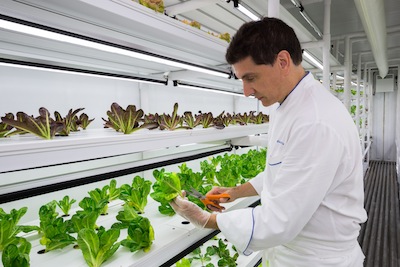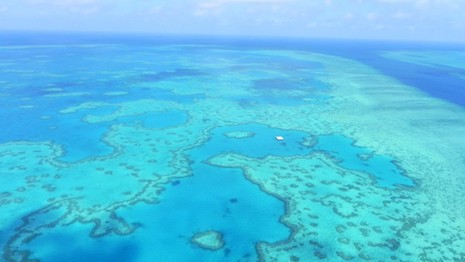Post-boomer clientele represent more than 80 percent of the travelers who look for vacations that help the planet and people, pointing towards future growth for responsible upscale tourism.
Virtuoso’s 2018 Luxe Report found that millennials were the generation most apt to seek out sustainable travel options. As these younger travelers gain disposable income and means to spend on upscale experiences, brands should look into incorporating eco-friendly elements and service into their offerings.
"Perceptions of luxury are evolving as more and more travelers also consider authenticity as the new luxury - access to pristine natural areas, genuine cultural experiences and getting to know local people continue to advance the notion of luxury travel as providing a great vacation that also helps to make the world a better place," said Costas Christ, global sustainability strategist for Virtuoso, Bangor, ME. "And let’s not forget that baby boomers, who gave birth to Earth Day in 1973 and made organic food mainstream, are also rapidly embracing travel that cares for the planet.
"The encouraging news is that millennials are not only doing the same thing, they are also taking it further in their interest and support for sustainable travel," he said. "This is not a trend, rather it is an evolution of travel."
For its research, Virtuoso surveyed its travel agencies.
Sustainable focus
Millennials are three times more likely than those in Gen X to look for sustainable travel. Gen X came in second, followed by baby boomers and Gen Z.
While Gen Z sits at the back of the pack today, Virtuoso expects this group to take more after the millennials as they are older and have more money to spend.
Beyond environmentally-friendly travel, consumers seek out tourism that gives back in other ways, such as protecting local culture or aiding residents.
Hotels can incorporate sustainability into their properties in a number of ways. Planet-friendly practices such as reducing plastic waste and lowering water usage appeal to travelers.
Guests also show interest in locally sourced food, which supports farmers, as well as other initiatives that give back to the community economically.

Ritz-Carlton Naples' grow house. Image credit: Ritz-Carlton
For instance, The Ritz-Carlton, Charlotte, NC brings farming to its urban situated hotel with several “agritourism” offers. A LEED Gold certified hotel, the North Carolina property has worked to further its green thumb with a recently installed rooftop garden, a farmers market in its lobby and conservation education for its youngest guests (see story).
Ritz-Carlton Naples, FL repurposed a shipping container, turning it into a "grow house" for locally cultivated produce (see story).
Animal rights and welfare are also top concerns.
For instance, in 2014 Starwood Hotels & Resorts opted to ban shark fin from its restaurants as the population of fish became endangered (see story). The chain is also aiming to serve 100 percent cage-free eggs in its hotels by 2020 (see story).

Starwood has made commitments to animal welfare. Image credit: Starwood
In addition to seeking out greener or more responsible travel, tourists are showing concern for the environmental impact to certain destinations. For instance, climate change has been destroying the coral in the Great Barrier Reef and coastal cities such as New Orleans battle rising waters.
Similarly, the tourist traffic to Machu Picchu threatens the ancient site, as too many feet trod on the Peru landmark each year.
Along with expecting hotels to take action, consumers are also looking to enact a positive change while away.
Traveling is an increasingly popular way for people to give back, and hotel brands must stay on top of the trend to maintain their status as the best in the business.
A 2015 study by Tours.com found that an astonishing 55 percent of U.S.-based travelers partook in volunteer work during a vacation within the past two years, with almost three quarters calling their charitable donations or philanthropic endeavors “important,” “very important” or “extremely important.” As “voluntourism” becomes increasingly common, brands must show that they care equally and assist travelers in partaking in volunteer work or gifting to maintain status and image (see story).
Eco travel
Consumers’ interest in sustainability has led to green-positioned hospitality brands.
Starwood Capital Group’s eco-friendly 1 Hotel brand reflects the luxury hospitality industry’s move toward reducing environmental impact.
Launched two years ago, 1 Hotels is a mission-driven hospitality brand that set out to show that sustainability can be a beautiful, luxury experience without lowering the expectation bar or coming off as too “crunchy.”

New 1 Hotels Brooklyn location. Image credit: 1 Hotels
With sustainability as its foundation, 1 Hotels has seen goodwill expressed by its guests due to its transparency efforts whether the results are good, bad or ugly. Guests are able to explore 1 Hotels’ online dashboard that tracks each property's water usage and waste or a particular room’s consumption during a stay (see story).
Other brands have incorporated sustainability into their operations.
"The outlook for sustainable luxury travel remains very strong, as evidenced not only by Virtuoso's Luxe Report but also by rising demand for purposeful travel across the entire industry," Mr. Christ said. "For example, in September 2017, GlobalData...reported that growing awareness about environmental issues has given rise to more travelers seeking eco-holidays, with 57 percent of American travelers surveyed having incomes that exceed $150,000 annually being more likely to book an eco-friendly trip.
"The same trends are reflected among many of Virtuoso's preferred partners, such as Uniworld Boutique River Cruise Collection, which helped to pioneer standards for environmentally sensitive river cruising and have reported significant growth in bookings by luxury travelers," he said. "Demand for sustainable cuisine led The Peninsula hotel in Beijing to commit to purchasing products for their restaurants from local artisans and organic farmers.
"The Brando in French Polynesia, one of the world’s top luxury resorts, where President Obama also stayed while writing part of his memoir, is run on 100 percent renewable energy with a robust conservation program. It is hard to imagine a luxury travel company in the world today that does not have sustainability in their business plan as a way to respond to this growing market.
"For Virtuoso, it is not only about business trends. Rather, we believe that sustainable travel is the right thing to do to protect our beautiful and fragile planet for future generations."
{"ct":"hfNNdjh1PKhvMUkPDo8mAMr3ATE63w\/2\/weXxXTk94\/1y2VZ1dRsJWuJPwCo9H41o2B7vjsb\/ukN7BL+H\/SURB55wS0wKFZhH1xH1HGs+MhLIEkUtTdxig2Rn8c+vOWOKt9TK1CozB48H4AI5SAzC\/nnzh0uTKtP6cidvLzc1CC2AW\/Hu01myOG+baJz+uRpfgeX\/HWHXStJHVvMWiYJE8ZWX6gduYNa57M3\/jKNXG6S7\/OVWvmV3rYdAL2wixpEg+KmofKlcycCbMa14d2JAJoxNdUgwzoOKB0I7\/mMtXAb33\/sZH7NPLfMp\/V2fHyel0pApJuq+\/aaLyw7szeZlGt83s\/qz63DW3bVEzPwcgOHE5yEFNAKnVu9HH5DvwTjLDctdnLFXV9DvyZlY7SebBUh3t3oU5AyC22XfSH7Vd8v46xDRQmoTf79KNAyraWUzf3bZT5xAJloHbbrfIhfTkjYwfFwANb6j62aeE75IA0CsuEVxPjSYN\/WaCcUzvSY2b4iNArQu\/QwwRIEuP3H3AuHwvOlOgfjpN5\/gir1ryshK+f\/YW+JKSBt1hu7D7kg7VZQF1zbyjou3o0DMWeFEwcai5d+qUAJ0wOWEzrVWolrAXKUxjKHjzy8w6Wxur7pPD8lNtQPDK+Qk95GRwyRnx9h0Ktc0cgMkwZ+U3GFIvRYRLv3buFXrLIlmqUbJmro9yd6troyAux8\/T2haZBGB7CmqBi5pHFEk\/YvxBhdDNn9gA8VhkalpBV8mWVC0F4ZugHyHHG+rFYJeuwdfCE5prJgay60UxxN2\/HWLmar5yw2XtYV+nRy8k4g3omzMu3mzFqEikbU2y7p69e6u\/krDQi6+vYf1GWYbJjU4FZFvSaW6PchfjES924xshfiQP2qho2FJmP\/P0UsNcx9V4F1HOFpg3Is4OV5poyb4BE+SdeDPEIZuG4WoOmUbLHH8n3Qrobz+fK3XfTfHDcYdBxFfK\/3TtP0BikcIwAkbkvuX3ldEn3KrUpthaIHI5EHZ0WjwV\/UmVAZOSrha7KhKZXYpfIOMdGLNvmV6JH2\/qfjkE0SQhAHquKvaP9tDg5LTU5aUW0oRP0zwqo4G6IeefgqxtLqZElY58BbnKG8CDGFwZlysIdpZIHF\/p+W321yA\/8\/wJW24SgD4xxDMIP5HnQ8O2Uicn0nu6oKLTPdQ7VMDEvLhbWj7ekbJ0VvBpQTXzW5BtHZh10GXInp103+TfldZNB\/b8z0wIj7GfmIfFiXksiUXdk6gqHZHrjwOGuxYSh7n+m6EffI4ut3Oui2g2LFQXGbYP8aJJV5Jxr0MrpmmhO3c81wwj6UCCawP9G3LEgYJBRRBf7yMvqpggSlxAz\/kDpQeR0+\/uGquNGgltM5PuMpDRK3eQsxiQ\/bPDtgaOFazb3UFLBQN1W3Y280QnRtoKVG6PkVOp8s1x5uaYXuzQwQB5y7uSthrix4\/BoMkivDVZg7Yhc+tOIZoruToZUL6rEJlELbDxrpp4NFia9Ne6RrPQHtjQBP21Qhuh8H2SHCfw7XSY1g1ObkN2s21TwtF0htNDz2pjZq4S5a3plZMFWzVTlSE89qncn7UEt41QBIfhJBQI\/bQ4\/w\/TAqZhzkB3Vj1TOwHL5KCta6bKqHAiN0YN1LqVBQSeDQCM1\/7scWBk9Inoret4116CbHC1\/9WBF8iL+WmCSk5d073KyKLWFdMYR1oOmttfJBa9RSnszDI60b7YNjSY0o4BdayDkKO\/0r\/u5WxYZjOX5z+yETM8Nw+QO1CY5qhAd515\/a5h5mNsIChZbj7r5PF2u\/Cfx+WKhN24xnYAgAih+YHYdfxAX\/pktGYUcgHPAZD1rJaUzw+zE4rg8eAFIcpTEn0Su\/8hX+TTeMJO22ouhOjVsW9Db6Mn1ZwbjUy23AkbMjSTiTEsRfFxzKOpqfdzM64zpSWFeeXtt1Sezncfc3ypXwISrGQ3aHeS90iLyqtW\/WeG1C4XyR8KKe92fSAGxAe+FIY4i3QQY+l+2j7WC+cinFA5zejTIOxEHx+dAKLB\/fojIBgWBWBY0L1khPf\/73kagw9ajwan7fQdTGNlQ3XehR96hC\/EjKweAMYr74K0x5Xa7LK+eZGzayznxBtgUcp7kpbSxZFtJycLQLTM0qFtsotlOFWM3y8eJrMzhhTiWkK\/9NolYAyATSQgiED9yarzNCwVwT1mgFVpVhfGZ\/P6Zm49vDcPIQeUt92Jr5R0j090VkuIOLGVUNEDL8TMqnq9Rt5J437sGZreEhPjScWeP0kKsHdlH\/uMINsZ9PCe+pcZQUCcQrj8hHPV\/2kxHPZQSY9MMxJYmG+J3sRZJVUnWtd9MugvoRal\/GfhsCPYainc\/CpkT6YS7O9vIlTSzHtqyY8tF\/tUFhAbp\/6tqAB07pEoBuXR0tLygjK9IVnLjUEW3o5wInUBoggMkIE2t09m6k0S2UEqFF6QFXK6hOVVnc8r\/rssCAfIAfeUXX0bI6ct21lQzZaTZLkWAlvbhzYtkyb2e9lE40tzG0JYg1qa+ub8TwZ5Xo4hmIeShXJEFywysLuCSZD5sNvuzV9qFSb13kJv4SZOPMWH4okcurrlpzztIKLBYScmMC2FEbb7OAfMvgWSG5LIiIg3A7MoViz4Y5+JnYeRPYMSJi7leW8UxTHLjloMJc3RK+pxt8wQFOI1tvZMW59xgLtQWkfxqRZDNBAe6wdkC4pxxBE6Wl63BXLEYFiWLroweNJT4fZvwkC+JfESQeNj2ZRG7qn0kexrCTOwcr9Wtfp3IBIfoXLquKEHWl+qm+XdgceOsZpsUW7C34uxs8r3L\/9SxA0MLVXWkN2Q0AnkHvnEhj6k4eX+XwI+85bLtd3WM9\/Q9ppIy6Os1Nwtr8LbD6i8DOi+sKytXGeDgb\/kvgrBHXT5X\/XUW0i4nbksLnOuSRG7XT1h5VMDeSNg+Sg4ZzSBLslbTVrs2E+Y6zB3TGJ27ne0wlSZr4Hv96VIZIUrAcw8qp6LV1iglbpdgBWkDOtFi43kqKEPTH43baNRgx3\/5XmqtAXXedrA3cvo6pZKC\/sf+hsvfmVPYeJHtzmt6uzut9+FbDPDUvQZ5i8ZRu2FYRc0T0fCIecDMwt5Jfd\/gp\/O9vAmsDfge\/uDHj\/flXFxPcgV\/xvSRp+5R2MzeJoWsvYFvpg5o2atuD8eGU2upf91NJiBZIUyvo\/ib\/UGUFCI4JmAydtFqaBhz3z\/wEDfCNglHU9VGQr6S4DO5n3khD+iKfWvRU12H22tNfag\/+3jeduQc302RcnoUetxuujaX1rco4JsM9P8QV7B5myWS2l4q0uMx5FZLE1zCEMhPVQjh9YIKOrYiO\/nkQ4at06dpL9qb1qzT2G+PdAswI\/rzQaKv9ufkCv8deizz\/oJsD9odgGUYOslLqEnWz9kRznKbLYU6Ea3bVCI74+dwfetW9UsMrwQCDj7oKn6WhyiIXjhBNjcq1ZzjZbgmMh2rrc8uM67GvZbm4jFDq6pRAkwkFjLOe5CNwYM5XcRsU01Yijdpnw2TUKK+cq8XpyfJTg9TGcH9LlXrfi7chYqoRR34VWlCDcpVuDoC6f9xwilZSkzHnR3UA2dUyHEY1m2zVe5TE9dmyAqh2eurW9Nc0fs\/Rfne++L8x3el04ltfbN73CWrPj+QMB05RJf1PDR32j9hHM2hFLBSzjd0JpjPejM+Rh0M2nVh+zf9+0PuKhDlN+sy4E0VKjz1G8F7tHVV0ukEVvWNuKL1spM5Rd4+tq2aBsP\/ESQb3Vaf\/R8KznuXiEbW61yc\/BDdvg9LZYm8tm1xgVo2RVA7uH576dWkyQZR72N80n6SCLKFRjDlMcnPW4zpQZXo5jao8uEdh7g60f\/yFFQ36Kn0lgtyoZiT71VQNS3aFnw82yjYHhJjTzd6h7qctCEGsWxgFc3a2RzT8hB1VjfYNpLOdbFDWmV0Vv5C7x0zLc4pvg4RJVITjaHdDoeZOP+vvktm1tyo5lA9PChLJHAdijsUcFAn5s4OjvpDQ7pir8at1f2Ul6bc9gVdYQKImoNSzR+yZStiwZFbn\/SOQ9AsozIaiMPZs3oBHnGUtGmqv3bGj0LJn5+cEI2n4gk\/RwA3+CN5tU3CZ5raWbEMv+xIrMt6Yb9+dAgZqrW8kxy4KfxGPs8reoj4eOIMLVy8jttpqVCQonQkAuxunYe5PXgH08PzueYdN5pol7uG6u3LtbtpWs8mXTwtkMKdPZz5\/qvABcR58haFs6TkLeCNbbqaYAaS3eE2hv7vcWKPtTIKGa0OmIUaM60xSzSZQn7QB8ipREGGz05Ry7pJ6ptxnPIixcCM28FqyL3a4HH4prxCzBv0z02m2qak\/0WU0XaCuxOQuMR9ewe+X1QiNsjB\/+\/44IvHQ6S0wVpTtmIuBAkpfdbctTsYw9t4k95mqo7vxnze5Mc2buD5oHXVOCIA042hJs8hLvqYJ7zF+4mH8OY+qomSk4Wp0oqwz9vtScyozR93gmjlWVOzwCWSrTQ4sfje7o0SA7ZJnFdPpOqbk7kAwQwsew2YxhxTdCbzF0GtG+UQTtLkR3qdu92H9T0zwHNUr42gr3bSNS0+yBPHGYN74\/dZU\/h\/+d9Chx9ypD\/JP4T2VKFSy8SfA5Qsfeiw2WIxcPxA3qupIt\/4BNHsMqFRQLb4u9\/HKvc+wr0CqLTUd8DiYCqInr5mqBpD\/WlP9S8qwYlSWExcfiEjtuvXqxYEaThIHMfWQ5ZTtZ+Tru8XXm6+yAqShtLcHx9HazwWB+kFFYynGSWluiQ8WJodSJX0Rp4zbgf3uQzlaB\/59eQKN54poIm5fmr7L6OyJmlaNCb2hDF5ugMG8izvN\/6lZSD6HslJlRAxiOmEYka0hSeN552Dqmm1nIwOyAVrUQ33KPZw3DZ4Fije46YwOzzRYjUmOMIZ3LhktH\/V7H8Qem+AwyP6JXHTHOf3Mfx5hEWSFXkP6VoyHc0Yne3GLyD\/FCARrjZl6NzlSUf47ODtadC9zsa9E9P6zFIXT4Lwq1e4zFRdzOUMDzVac\/x3npWNtfGUky0VwczEiYGtHrcnolZxFMBU007C+4m1GechgTFpB4++o\/OEg8cfeE0RYyuw+opGx3YPrQlNSr6MGDs8jMNzVxMYts7bOe7tklPkdw8DGiX04BS4aJigFgtlWrHmn6Y4CexoJx+gDLUO7dYEJ0zqqyVb5P6YPJK+hKKFl2G7hWn2LLDhSWccJpha\/drtP86jQ+FEt2Tdv22JBtdNMU1ajXdLvzRsybDVJiFEId1K2i13XqbZA6P4vTv+UJNgkkXjxExe6vzuA23eCiBqm\/47U7KRJbRk1h2tINur22lL1FeRW54SvIB1zQhdRYxSeSyTJANsNPhHopEXUdWg3kH+XlnahLMofwTllpEDbT64UOqqxd7ncm9OUFOg9+PBP3ZyuJcuNcWo2USynILJsXjyIb8LEB1RQfc6+gLXcT6wSnylFEgWoPmci5iPX\/sSl71gACAjRpIKHtkrJv3y5YPn3LMI7P9bZ88cPdl2qTKfW\/CJ80p78T0ZdAHw0cWoAL1jjWQqNUbteKdZhp1rS1e4GdTCrRDZsG7pU9wF57ecCQ5vJgmAi2BC0Q57mLuU7U3jGjXCpyjwWSq8Y9V69XQxNCsG7v7ywmEAV9nfM6fVY0UfO6I5IcwJ5MkR4JY9IxT4XNkwgVAUIEtD2YucKFVMQ\/Qen8dQboxb6G4X\/dVWYC85Tiyn92RubGGjTkWTzLe7KiS9pFSQvsao8FaBNuaFvL4C4+xrppSy6mKUw7UTsoZy8T89X7wD\/uDaKoJxkOmr\/A12eS8DoP39tqR4EnB+7JN2FeE8eW6BTPK7PuyRmkpgNev4G7drM+v6o64E2WCsPeURAeFDB0fSmEf\/kQPrtXMLyDGQjkzkkJBeAncuFzZZjYfHfjRMoErLCtQNVmUAAH0he1z1LaXhPowHjkEFeyDap1JGawB1wI4T13YRuJWWfMcA1ewWbElqSBwLFj\/5sfcfscfzxfrHEEX7HjfE80VzSxt8eMv8Dj6z5FqltnvqEkEdmHk0ZWmAWjHHlVpAsfDrdPRouBowq9z9g8ReG0unevOfngUNmfUDU6LHADnPlrcx58c8NBUJqMnIZHfjXmqrXect1sMiJEpt05EotWChs28QcpNKodpTV+ru\/zWT1dCd9ZLzkqFycrnd1O8j9Sp6omzzdHvwdruw1t9IbBiBk9YwzCR0+PA8c1gO5qPAaXBSoHfudyysmgeF9t\/jsUeymk3h2yPgnWE2eldPzPupAA167iNvt6kFRAJmMB\/UfoQu2Z1bD6VE1ks7D9ASBshmFQb8v7eFOhtadeqbv8ULdd0hjdzSFGdjwJpVuZ4LwdCLoN0kSzHcjSm4h\/odAVQFAY6BsESB0+RHlULKJ8ea2iJTcVWIiZkeF7522NfO0e5BPiFdaEIKmW9zetni1qZilXmfaIIugqcw1Gt4\/6rk8+nLvW7zS9IrUC8sOboyAVtXyJDEn+4Zn4xQfDz\/oJXD58\/QH1uR1+irNc5epVoaq6niliiHzOZnD3wLTNmqPHzU7LSf9Zp8qF5XOf8+yPYNIRGopqLJn+pwmO47FGG2gFipd7qO\/B74n5qYwmcmMoLyU8T5FAsAvZBl8Wiq9JMhjEHu7yDIP6XMmRcQtZvhGB763oYJorYUcgfloW0\/Or5A6kOBpEe2jBXlCQeekcZI0toJstXv+tg4LYFk532A4khAFMLVQQFQJtyTZsum4RtiwOSD6taiTpBWkxJFD2xAYm8wJ7KuiQ4jf6dNuddXDnClCqJMm7vJLG9JHRBNzvV+vy4Psi+FElaa1g16hqAYcXNlcDJwzjl4czvCt9kC4GuKWsFEyLiyXzJp\/ZW2To9wbGhOvkl7OdByJFFlXBauByKl6QZZTiKVz4JrO6YGsNKLGO5FcbdkLuvn3cwZgL1KkzSSYGflB1jD2NKpUbDGk98A2E+p1\/+abHUV2IO7rnvro+JAsFfYg67k1pItTN1asyPpOu31MEGSFZn2sPq+PnvEgbUoMbkdcsKZ7rTZFL4PnwF4ZElR\/G9wQY0IgwmxXjPgmySW08Uv8hy7uKVIf9CLvMK7nTxhKjYzSG7a7DPWmAyxqNT3Pf\/\/LLEfkOHXCpU5cH2SlgsTJWWN9a8EoJLEeFd881IZfFLwep3\/B2xGEqFpY4q1SXTvINku\/Px5A+LrwhKlWV5JD7myqSba\/vVuf4bFIXYPFW+4YnnwSd2SSK4XRChuJAOZ9sCijNzZPLQH2TZ6HSkqg4MnU0t4ZHYiw8RI2l\/\/wMILv2Sq\/ISnefcXOYX9tn9rb8QNn\/SLpleFRduPrVAwEed9n0IxnuAgva2HZSY5eqUZMcNwy0I7271JDcyGucyuwvZa7WY0fC1r3\/Hu9tuf1xAeozIfdHMlSN82yGGbWiAIFgtIMUm7EzMUQGF1nPZLCWL7w\/\/jOh++YMQslVvtUOuy1RRUIrso3l8b+dxOXf\/dUBSdqqXGeF+2+v9KOxz16gWrM89GxCJmaTXzJ7pI2AXQa7tSggG4xFqcb0eouMrAQ36rg5bAgw1HJp2G5qlC6DmI8c8Nbnpw\/lZS\/VXKQ5fZA8a0L2LJl+\/golAUrp2VtV0Jo0VJrer4YMBFaNkMuvp3WjhIbczIctmALYb2wGBvZOAhpC5gBevyQ6JzK6RRuploUCJTBI0vOpfn73f3Ot5RxxN9up\/6WZ19p7gVloaKXE\/r6bM3E6ybvV9oAgKP8ZG1FCfFEKiNj0ihWAqwmNl2JkYVpCOC6LJrn1t81W2sxjY1PtA8qS+A+dRZM\/e6hoOlyN0bGt4rMC9CdlpXqK8s+ezL1xrmjiJQkGoqsPkR+c4oBgOW6xhnt05wNpBqQ84M+gFNo8cpQTRKc6ttq76HI2G\/R1QZrOUVrYnNW1VqODcJZpUIqdIVs9Z2F4fVZQZPl+vLQNJt1Lt9xuVsPpEws9p3H+\/PYJEIQAC8iMZ\/YwgcJaAPYDVK7LCH9xqKWfkM3L2en8vCmiqKtcdJb1jMPuL5bC4DT4dp9Dtb4DBcqkO0z8a74ou\/GXqFN3K13w92DBCzwkPwql8KB1nLr6D2CS6FFg4KUWzgTAPfj3lTlo54K\/VyNDpDAjDSWFN6GSnfaMCtN4Gx04fecFxxEfiGZDbtdTiMiG9fr8R6mjIcPTp9cq65KMKc+J\/YiQtqqqKxlIkDWzDbOAvZ1kxGWxC5F3znuZs9b\/al0TaYTNpSJ2jog7tGJonuacSToMOQnHf54fiJhVIvngVMLWk+d5ZIsfovvyXQnLvShwDxnz+QEuYUy4nXFL1cQ1WWJy+5ISJAbCARucbjwBLqhyYM6US+yItKtEOV6ka+8FIOtJKP\/cvHuT0gsaHYdgsz45Cw4RN7Po\/jvP8MtlLJ12g3hQELSvKnpLnzHi77+AitJ7TfZgQ14gqneAt3FWpF7sAP+uB63XBche7hqsu6zO29Nz2M6zU4IBHrNJ2\/8N0414N2Au7reVvAg593R6hPBY9Chd6dFPYnGe1SLTcYAl4h0wvnbwywIgW8dM2Aay37h0GCch9+e5JbmTbqOd0u+mSp3j7+4lTtJEfEZBqdEu8ZQ1y6U26mcNFJz7sFZHU48SL1MMB1Z\/LJL\/\/aH9VKP\/U+ApK6IhfAe\/WqD685ghHvSeawE6BP0Nrk3K5mgET9yAfIDLaJvQaqGA65RPWQ2rf09aCB3kXvzHaQy+Tebdj3KAwX7n0lJhDIFFCWDSMKZBVhEDWO6VEUQJNwLQcMNZ60GY0d85w90tQyrYgWBl+Vd3AWV+7bDyZjcupQgMADeyqjjUXlXd4xntFoHlvV71XkKf4dTP8zWa2nWPc9Hrbspf7NF+UxIpTyiheOTjVXq6qumKEdNTWUrMpdk+YbHtW\/F6yzNFRwSRKn\/5HawJgQdh\/7TTQrmbW77jlAJsMq5rIBIbw\/s3WQZ\/z0f6s44WX8LGhhdNxEwGgr6O9bPPwKjGs\/wNFpb9bljEnt3SDrmtpaGSWLTNocnctWEWKqnve49sknzIq3FtpfgFmIsSH6zEUMJ\/Wjfg4xmR19JQjDqftBDYcrlmDwpUhpoBD7xwVOgmDIhAM5mUoZYXCqxZ\/u97dSfo7fzgNBoKCnvx7MddpzgSW+keBRk6yDG1XM4w1Sl3yaF22uK0XpnCChqs2c+JRW+oPD9gU0KO14GrQlN7Xlm1\/qdpP5K8xFN1BTXpECDW1Tr15eyodNjcQBgquw4ZJ1Tg9Ewy1PWbtU4M4m4idJg25tChVunMYDNTcU\/YU+vY\/qoBV4msYS2AJmK9yyXzKb7NVRDt1oMrVhBJCWrgl2\/J7pCgK8LFAd3b7JEPjwOS7Q0pTaZaGhnhnbggoJA4r9n1ya5sy7sROUW\/IPbGPKwrdIZ2AXduc+ka7l0BL3byv6RvrgyQdagTiubPEOrE9wrPF2VeGi8KKRllbl2KRAOT0SrPziT\/Ec5L6NZTq60cBSrWG8zS0hHjMDZQyFcu64uKi7ygcbV8zBbzxM9oQeNJuFxJLGH5\/KYF6J\/NGCfXjZiW8OPvIvkRCwHvrCWkvAwhE39NRgOdXvp+D9ueP+pf3MWVTdWuhW9d03cFRSqOFFmlkB05qumhl+BNq89NY+SwgLrBJhL50FZ8nMnnngs6es\/td12jdGGQdSef4WB+ZgiBxcCKFvEuvI+dP1itnKSkheb0NyncYkexTvB9At2FJN0rG3NQR0a0n5tKUvl\/aVtqgP5GtikOkcRVIbL8thBVrSe9QQwRhu4esokoLf3Vh6wq0qvPTsyFKK9Pm++o6M38V0rjbb51p9aOXkt8LBXiFOvyDR\/VBjYwNrCYi0OmUv0XwIOfL3jQo4XH+4aKwXjD4AKGPJMDHuaKXtyvl268IrNJ3fOJqinTJ4JcQPmOVJOUDmLfSC8LfsxxpZJ36IZnomLbcomhufF0ZwnLjibB4IJYJkptRqi+s2xjTPHkyWbI1bnZXJAhO30uS5LxzvHO3r7L3AlN52oLIAZdqxTph8e5URsJPqF1P3vHkvS0iRGX7s81kDrbfD129aA7ZHnVAfzkqqF85z6sXJw6SB4EalSzUKtwTSqWZHG4DzQigcVg0SfkD6+q+z2HkJfbuPwnJdPH367jXZvTIn231aIllg5YmVXjakJH+LEtmrqCow5Wern2NSLw5kb9InYZ5nkmwIavb+S2vDe5qs8gGZFjacCumRqdXcMoVwVxkCHkgZe+Nku6FxPNUOnBdUy\/b3KDgg4un2D3JXMxwOo23hwPz2upy5PdVRdplTGwNojl3Mp7XetPEP7Oz26bqcTFNVSUhj3Rxnv9PWqZfWzKKP+8BoelVi4fdOjKaciSVKrYpet2elJEVxmNHUQkztPw2hCGOCQLPbSRoo3+3C18w\/4Jz9k9eE6Dbr62P5FLlH4+jTeiwJ488QUGn+6W5+ZRQQbbKJZmT1i7P4qVVSe\/JejjYcxquteG3nrrzz542JL5Iy5yfWAYYMElrJi9eg7lV6yI6LV3SpHH6gO5EUmuIsxmBmGwc3sB4ztEHQMJZMaSxgtR73ZlOZE1NIBK5tMt7ba7OrGwTYrhrQmQWHLFzSOzzix3QELiy6VNN7L7DP+nzd6Vd\/Lw9Z9N1YRG0oSFZ5KiSrO95Kfy7BtzFlb4N1DEqASHqOC4KhcpXwH9\/D4aOiteBhZqF1Az26h5hXZUAKosy0OghrV0jnhPeBfXXNY3K8BYvULdy3wN5tuN\/kZH9gHWzbF+vh27BMaGtFPs4SMhowJxIkutQtdq\/KApPkJ5Ywcf7GZDUBrfAaTjF7efOIw22kOYi2stwf2ugL25ZHe9PuEEGo2d5r++DwiR7YivDHcsDoOjlekO5EpXXJnQ3MlO3M05ZgvhmHYTjJKgtwTSydfa\/ZAkrNY0ENtjrlS3BnDEmtgWAxc3q9S5S5cj+7lxWrhVgb2pU3IGk\/KM5Is0jKHPAsrQ4+ASZVdm6+z2Ii9gzFdVTIQ253zlVemFEG56j\/jet3XEqnMzg5vmywJIO8kTaQhThUlTxG+0NhBCdmkYtxhswhBWtWqFOr0tifNfVgxwoOAVttMQL8+izGNE2awgLmSn36f3QapvRRyBtCFumfTiSTWmHiKt7j3wWPkFuo\/AIOLwIJ2iS0abxQwEWi0v6fbKU+u7muyj7GPBzQ8JPOU7hRtQS7xkrutZokD8DaooC6kRxKNrZ0c0xLMu809hjG8PeDDF0klZyPe+ocVgn53k\/R7d4\/KxbhMrRB2L0QhqcjHTqRxKfC8pFWB+QE+X97zYJsdU9PIC2yhNDoAwonFTXxkCrZlsqJfI9fTctm4KJAxumf5O+x4hPxvnI0QrvZh2hJVcz\/YrAgnIfJ6KqEPloGxygnJIVzyfPl+bQVp1NV6eSx75y0t+mTUZzE14syevcnNrjrO4x+u8PV8NB6KsAXG4HF1me9BiTKIefBo\/Q7YQQcKjEnkMpqwRnCH+WRYgrt+dflhtnC9PR4YJBxQMG+2LAtyZuPNUroOGxYmBwxkxwENLEFjhl8Iqjao0jYdWVXlm8ZRMUEyRhScNLE1AIQjXh9st9xTfE7Y+muYBKTGxH4A+Qzegy3wqqIVIiMAFKywUamLHQBxPGl9uEcAs8TnUspN2iGRfz7o9nrKdLYkhGWL0sBaI\/hGKF0jZdPGvfqxKWcrBJp7\/PQnVA8NkX1kWIHldgALcyslIz6GRCgykCc+dUlazzqyBxrD0ROzTxmMwJD8b7ich7wA7Qqx68Ntw0UkQEiN9DY4OVVtDk4QhtEIu1GJbnnOwUGmuaCO75D2NH4GSgq2ZpubYQHlfLhURVGmBs4WaSWn7mgdui2asidtR2QXGk6P1f4Ku9joTF3V63mc90x3HvkN8IN1snkVClnfF7RiRTI7nw09cANJ7kRVB4l+Q6FcN2TNiZMwYRjTNK7ZC4CB7ivBauOAYtzPZDaw3h6EAcUkuRTsmn+kDPqwjKcwjwM2rVIMTqsMhk38DOsGmcy4cNyOZsP+H+hwjTvcHNjgSWrZ3gDRRsPjPVQMmsNFpA6yPDh8ijWsB7bsRYG67IaPd2IMfoKsHdr2H8ceNr853zN2xdemsAyWPtKFKCgcscc+DtFdvGzenR9atLq5+8jIIdIm3aCnyJmGSVQE5v0MrLi+noaVFqN4NNN4PTjuGYRvnORSJnOwQLj6TQUhNT9XO4QkSbcUPhau\/tMbm4IEJW+ffRT1MbjVJ2gwX\/QU1Hn\/WItjDX3UeiOKY4nlk42EHHu0onk=","iv":"d018cf46dce070c888cfd1e96fcab094","s":"ee09929069318f62"}

 Luxury travelers are concerned about the impact of tourism on the environment. Image credit: Virtuoso
Luxury travelers are concerned about the impact of tourism on the environment. Image credit: Virtuoso
RE: “Hotels can incorporate sustainability into their properties”
it’s shameful to hear that positioning, as it sounds like “marketing” and “PR” versus authenticity.
PLEASE, start now, build sustainability from bottom up… start with the land you built on, in the community the hotel resides, incorporating alternative power for the property and ALL supply chains, all employees, and extend those benefits into the community.
Next add in the local vendors (sourcing local + sustainable fabrics, furniture, gardening, water supply, etc), farmers, artisans, and educational training in hospitality of 2025+
It’s not just the “right thing to do” but rather the ONLY!!!!! thing to do, as you will be pegged by EVERY generation guest as a complete Laggard company if you dont.